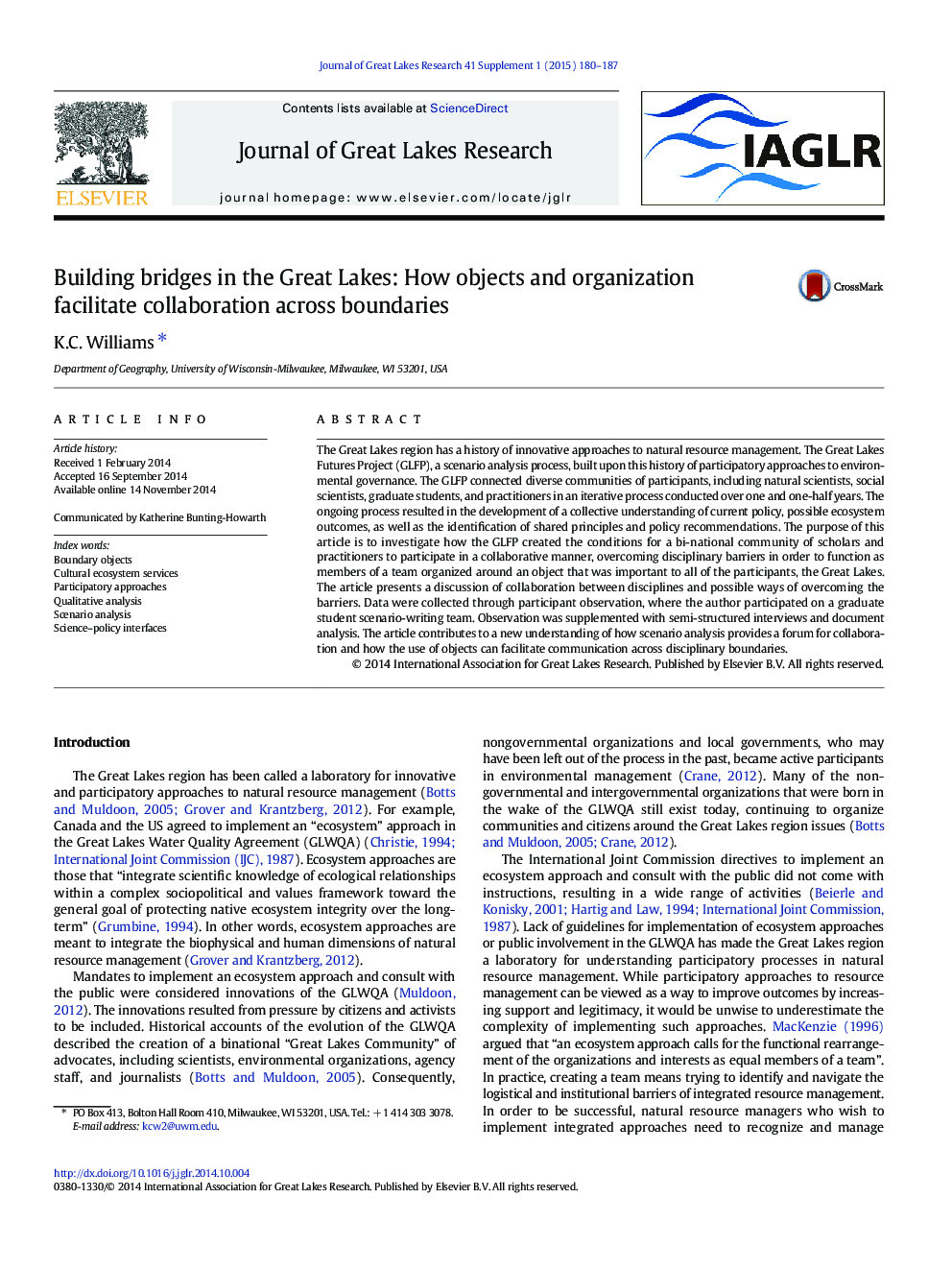| Article ID | Journal | Published Year | Pages | File Type |
|---|---|---|---|---|
| 4398325 | Journal of Great Lakes Research | 2015 | 8 Pages |
Abstract
The Great Lakes region has a history of innovative approaches to natural resource management. The Great Lakes Futures Project (GLFP), a scenario analysis process, built upon this history of participatory approaches to environmental governance. The GLFP connected diverse communities of participants, including natural scientists, social scientists, graduate students, and practitioners in an iterative process conducted over one and one-half years. The ongoing process resulted in the development of a collective understanding of current policy, possible ecosystem outcomes, as well as the identification of shared principles and policy recommendations. The purpose of this article is to investigate how the GLFP created the conditions for a bi-national community of scholars and practitioners to participate in a collaborative manner, overcoming disciplinary barriers in order to function as members of a team organized around an object that was important to all of the participants, the Great Lakes. The article presents a discussion of collaboration between disciplines and possible ways of overcoming the barriers. Data were collected through participant observation, where the author participated on a graduate student scenario-writing team. Observation was supplemented with semi-structured interviews and document analysis. The article contributes to a new understanding of how scenario analysis provides a forum for collaboration and how the use of objects can facilitate communication across disciplinary boundaries.
Keywords
Related Topics
Physical Sciences and Engineering
Earth and Planetary Sciences
Earth and Planetary Sciences (General)
Authors
K.C. Williams,
